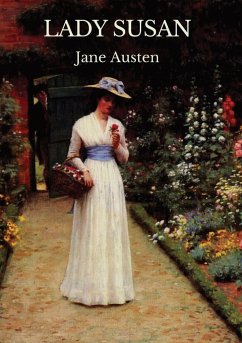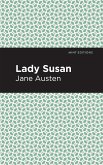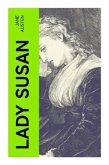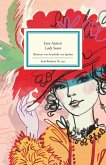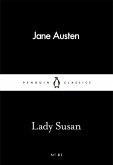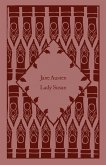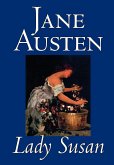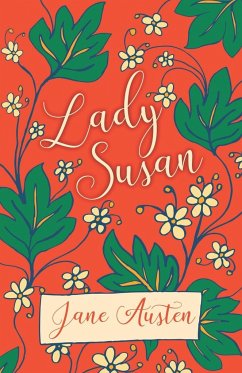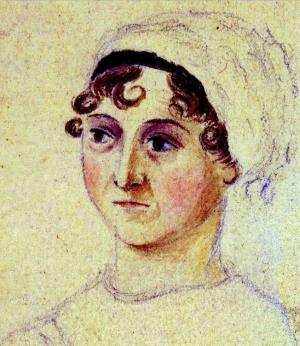Lady SusanJane Austen1871 Lady Susan is a short epistolary novel by Jane Austen, possibly written in 1794 but not published until 1871. This early complete work, which the author never submitted for publication, describes the schemes of the title character.Lady Susan Vernon, a beautiful and charming recent widow, visits her brother- and sister-in-law, Charles and Catherine Vernon, with little advance notice at Churchill, their country residence. Catherine is far from pleased, as Lady Susan had tried to prevent her marriage to Charles and her unwanted guest has been described to her as "the most accomplished coquette in England". Among Lady Susan's conquests is the married Mr. Manwaring.Catherine's brother Reginald arrives a week later, and despite Catherine's strong warnings about Lady Susan's character, soon falls under her spell. Lady Susan toys with the younger man's affections for her own amusement and later because she perceives it makes her sister-in-law uneasy. Her confidante, Mrs. Johnson, to whom she writes frequently, recommends she marry the very eligible Reginald, but Lady Susan considers him to be greatly inferior to Manwaring.Frederica, Lady Susan's 16-year-old daughter, tries to run away from school when she learns of her mother's plan to marry her off to a wealthy but insipid young man she loathes. She also becomes a guest at Churchill. Catherine comes to like her-her character is totally unlike her mother's-and as time goes by, detects Frederica's growing attachment to the oblivious Reginald.Later, Sir James Martin, Frederica's unwanted suitor, shows up uninvited, much to her distress and her mother's vexation. When Frederica begs Reginald for support out of desperation (having been forbidden by Lady Susan to turn to Charles and Catherine), this causes a temporary breach between Reginald and Lady Susan, but the latter soon repairs the rupture.Lady Susan decides to return to London and marry her daughter off to Sir James. Reginald follows, still bewitched by her charms and intent on marrying her, but he encounters Mrs. Manwaring at the home of Mr. Johnson and finally learns Lady Susan's true character. Lady Susan ends up marrying Sir James herself, and allows Frederica to reside with Charles and Catherine at Churchill, where Reginald De Courcy "could be talked, flattered, and finessed into an affection for her."Lady Susan VernonThe main character is aged about 35 or 36 years old. She is the daughter of an earl.[1] She is a widow of just a few months, who is known to flagrantly manipulate and seduce single and married men alike. As she has been left in a financially precarious state due to the death of her first husband, she uses flirtation and seduction to gain her objectives and maintain a semblance of her former opulent lifestyle. As a widow and a mother, her main goals are to quickly marry off her daughter Frederica (of whom she is contemptuous, regarding her as stupid and stubborn) to a wealthy man, and to marry an even better match herself.
Bitte wählen Sie Ihr Anliegen aus.
Rechnungen
Retourenschein anfordern
Bestellstatus
Storno

